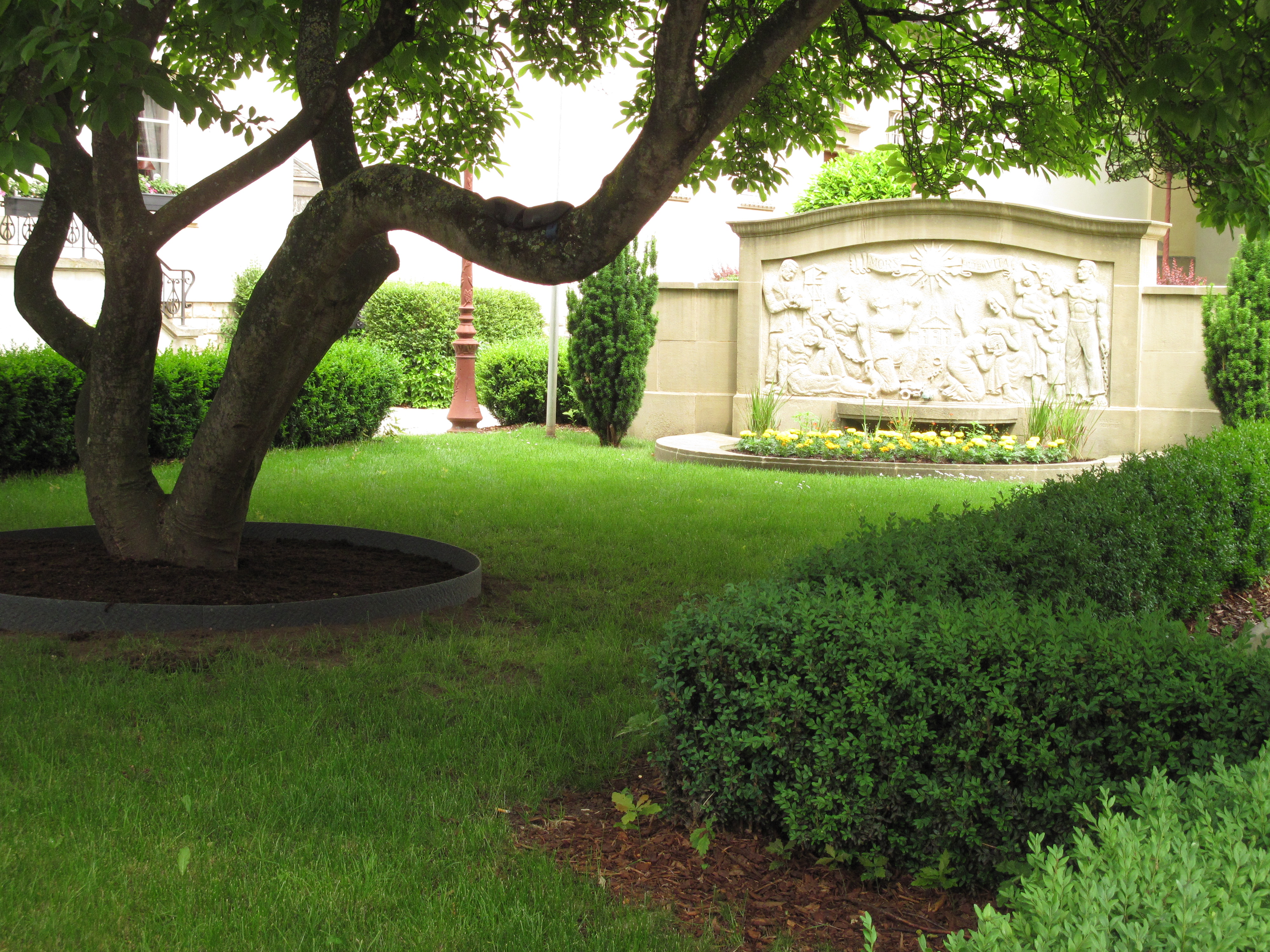My Home is My Castle
The second non-profit organisation we encounter, Liewen Dobaussen, has its head office in the Rue Abbé Henri Müller, close to a commemorative monument and a small green area that stands here as a metaphor for what is called the ‚deinstitutionalisation‘ of psychiatry. You may be asking yourselves why such an organisation is integrated into a tour about psychiatry in Luxembourg or, in this case, in Ettelbruck.
In order to be able to answer that question, we need to go back in time, more precisely back to the second half of the 19th century. Back then, a person with one or even several mental troubles was automatically placed for a specific period of time in one designated institution, the Hospice Central here in Ettelbruck. This was still true for the first half of the 20th century because the authorities did not want people who were socially unaccepted for whatever reason to be able to roam freely across a town or the whole country. As a result, they placed them under guard in the Hospice Central and the Maison de Santé respectively. Numerous people, therefore, stayed here, more or less locked up, many of them for the rest of their lives. With the medical treatment, the knowledge of the human conditions and disorders increasing alongside the patients’ rights, the number of people being locked up, even for a short period of time, diminished steadily during the second half of the 20th century. Locking people up became even more undesirable for every protagonist involved: the patients and their families and friends, the Luxembourgish State, the municipalities and, of course, the newly founded non-profit organisations, like Liewen Dobaussen.

One of the main actors of this movement, generally called ‘deinstitutionalisation’ or ‘decentralisation’, were notably the non-profit organisations. In our tour, Liewen Dobaussen, founded in 1987, stands representative for all the other numerous organisations who share the common view and a common goal.
This goal is to continually improve the general situation and condition of people with mental and psychiatric problems. In the eyes of the non-profit organisations, this improvement must take place in a domestic ambience, which then should help the patient to recover more quickly and to be reintegrated into society more easily because he/ she is provided with a secure and known environment. Liewen Dobaussen places several houses and apartments in Diekirch, Ettelbruck and Wiltz at the disposal of patients, where professional staff supports the patients during their daily activities. The first one was founded in Diekirch.
As mentioned above, Liewen Dobaussen is, by far, not the only non-profit organisation with a similar goal here in Luxembourg. Only a few, those who work by the same means and try to achieve the same goals as Liewen Dobaussen, shall be named. There is, for example, the Ligue Luxembourgeoise d’Hygiène Mentale (LLHM) or the Mathëllef a.s.b.l. La Ligue was already founded in 1956 with the ideal goal to treat mentally troubled people outside of the only existing institution in the country. Mathëllef resembles more in its proceedings to the already mentioned ATP at the Ditgesbaach farm. They offer psychotherapy through the contact and work with horses in Moutfort since 1999.
The few mentioned non-profit organisations are, by far, not the only ones in Luxembourg to take care of physically and mentally handicapped people as well as of people with psychological troubles. Since 1980 and 1990, their number has risen exponentially and, so, they have become ever more specialised in a very limited set of troubles, in order to maximise positive results. Liewen Dobaussen is but one of many, but its head office in this place stands representative for all the other non-profit organisations who commit themselves to the betterment of the lives of those who are mentally troubled. Thereby, they also further help to ‘deinstitutionalise’ and ‘decentralise’ this part of the public health care system.
